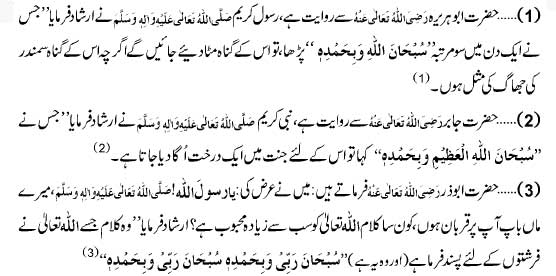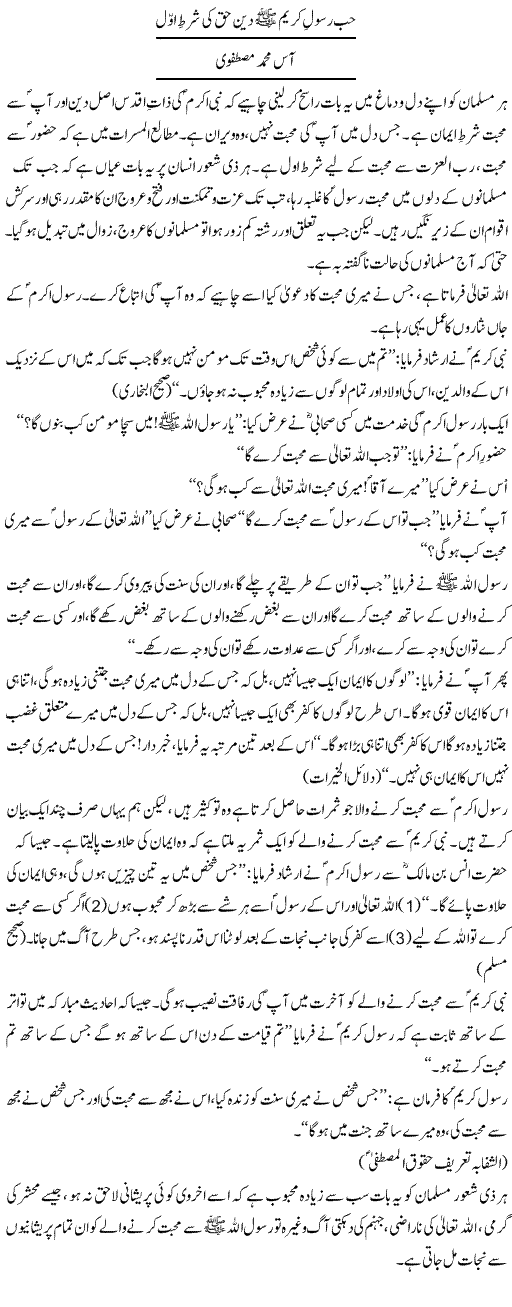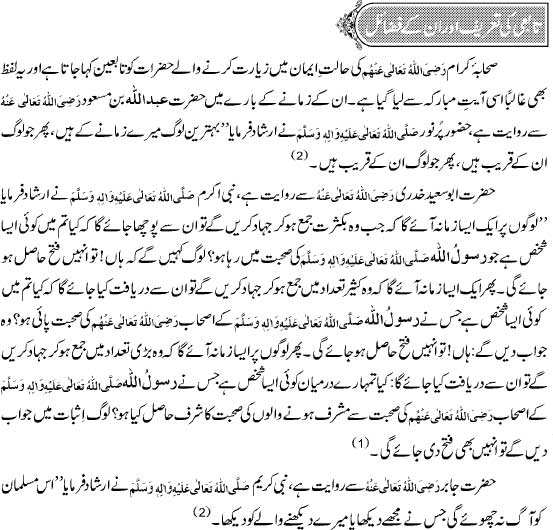
Due Measure In Rain
And He is the One who sends down water (rain) in due measure from the sky, to revive dead lands therewith, and even so you will be brought forth (from the graves). (Qur’an, 43:11)
RAIN is one of the gifts of God to man. In the verse above, God says that the rain has its own mathematics and that it is sent according to “due measure.” Water on earth is subject to an impeccable process and passes in due order from the state of liquid to the state of gas and solid. It has a marvelous balancing power, as it balances energy while satisfying the vital needs of the living being.
You would not have gotten an answer if you were, a century back, to ask a scientist whose field of interest was rainfall in particular, “Is there a measure in the rainfall; can it be quantified?” Being ignorant of the meteorological phenomena going on in every part of the world, the scientist would not have been in a position to say anything on the issue.
The Qur’an told us 1,400 years ago that the rainfall had a certain measure. Research conducted in the last century revealed the process of rainfall, shedding light over the cyclical characteristics of water. One of the facts discovered was that the earth’s annual rainfall was always of the same amount. The amount per second varied between 16-17 million tons. Thus, the amount of rain falling was above 500 trillion tons a year while an equal amount evaporated.
These yearly values remain constant. This constancy was of great significance in establishing the ecological balance of the world. The scientist of a few centuries back could not have estimated the amount of the rainfall in the region where he lived since the precipitation yearly changed according to region. He might have concluded, therefore, that rain is not quantifiable.
Calculations related to water cycle
The rainfall and cycle of water involve complicated calculations. To give you an example, researchers were curious to know the reason for the maximum temperature of the upper portion of the tropical ozone layer which was maximum 28 degrees Celsius, despite the sun’s continual warming of the water. Their research produced the following finding: the factor that prevented the overheating of the ozone layer in warmer regions was not merely water vapor, but at the same time the shadow cast by clouds. In the shade, the temperature dropped.
The shield prevented the earth from overheating. Water vapor also exerts a greenhouse effect. Along with carbon dioxide, methane and other gases, it creates an invisible insulation layer in the atmosphere. This layer prevents the totality of every radiation coming down on earth under normal conditions from getting lost in the space where cold is reigning. Water vapor forms 60 percent of the “natural greenhouse effect,” making the basic climate of the earth relatively warm.
All these things are finely calculated; we can gain an insight into this if we examine the greenhouse clouds revolving around the planet Venus. The dense clouds muffle it, so that only half of the sun’s rays reach it.
The quantity of 97 percent carbon dioxide there creates a super greenhouse effect and the temperature rises up to 500 degrees Celsius. This temperature far exceeds the temperature range in which man can live.
The water cycle on earth, passing through the states of liquid, cloud and water vapor, is calculated with precision. In contradistinction with the general properties of water, the clouds do not freeze, even at a temperature of – 30 degrees Celsius.
As it is stated in the Qur’an, there are masses of clouds as large as mountains, but they do not freeze into mountains of ice to fall upon the earth. Had it not been for this precise calculation in the formation of clouds and the rainfall and for the ideal arrangement of the chemical composition of water by its Creator, the system would certainly not function.
When we throw an object of a few kilograms from a balcony, we can follow its descent. If we empty a large pan full of water from the balcony, we can observe the splash on the ground.
The fall of tons of water from above, thanks to God’s programming, is so arranged that water coming down in drops from above is a blessing rather than a natural disaster.
This is the wonderful artistry in the physical rules imposed by God. Such a balancing of acceleration is definable in physical formulas. This definability, this calculation is due to God’s creation of rain in “due measure.”
Rain is life
In the same verse, God speaks of the rain’s regenerative power. It is a well-known fact that dry land is revitalized by rain and the vegetation becomes lush once again. The basic element of the animate being is DNA in which the hydrogen bonds keep changing, perpetuating life.
This hydrogen is exchanged with the hydrogen that emerges during the ionization of water. A dehydrated living being is like a frozen skeleton even though it may preserve its DNA and genetic code; it cannot reproduce or move. Only when the water comes up and lends the hydrogen from its disintegrated ions can the code be activated. Such characteristics can be observed in living microorganisms like microbes.
The more developed living beings cannot recover their vitality when fresh water is supplied, as their tissue surfaces have already deteriorated. Rain is thus the source of regeneration of plants and bacteria.
The last sentence of the verse that reads: “Similarly you will be raised (brought forth from the graves)” evokes the following association in our mind: God sends down rain in predetermined amounts, by which plants and bacteria that are near death are resuscitated.
The rising of man from the dead is no problem for God, Who knows the measure of all things.
God, who devised the system of regeneration of plants and bacteria through a well-calculated amount of rain, will raise man from the dead according to the measures and knowledge in His wisdom.
The sprouting of vegetation from the dead soil is something our eyes behold. What we see is the evidence of the facility with which our Creator will re-create His creation whose measure, calculation and formula are known only to Him.
The Deeds For Which People Will Deserve To Enter Paradise
The people of Paradise are the believers and strict monotheists. All those who associate others with Allah or disbelieve in Him, or deny any of the principles of faith will not be allowed to enter Paradise. Their destination will be Hellfire.
The Qur’an often states that the people of Paradise are the believers who do righteous deeds, to quote one of many examples:
“But whoever comes to Him as a believer [in tawheed] and has done righteous good deeds, for such are the high ranks [in the Hereafter] – ‘Adn [Eden] Paradise [everlasting gardens [under which rivers flow, wherein they will abide forever: such is the reward of those who purify themselves”. [20:75-76]
* Believers may earn Paradise through their eemaan and Islaam:
“My worshipers! No fear shall be on you this Day, nor shall you grieve – [you] who believed in Our aayaat and were Muslims, enter Paradise you and your wives in happiness” [43:68-70]
* Or because they were sincere in their devotion to Allah:
“Save the chosen slaves of Allah [al-Mukhliseen]. For them there will be a known provision, fruits and they shall be honored, in the gardens of delight.” [37:40-43]
* Or for the strength of their relationship with Allah, their longing for Him and worship of Him:
“Only those who believe in our aayaat who, when they are reminded of them fall down prostrate, and glorify the praises of their rabb, and they are not proud. Their sides forsake their beds, to invoke their Rabb in fear and hope, and they spend [charity in Allah’s Cause] our of what We have bestowed on them”. [32:15-16]
* Or for their patience and reliance upon Allah:
“..Excellent is the reward of the workers, those who are patient and put their trust [only] in their Rabb” [29:58-59]
* Or for their steadfastness in faith:
“Verily those who say “Our Rabb is Allah” and remain firm [on that path], on them shall be no fear, nor shall they grieve. Such shall be the Companions of the Garden dwelling therein: a recompense for their good deeds”. [46:13-14]
* Or for their humility:
“Verily those who believe and do righteous deeds and humble themselves [in repentance and obedience] before their Rabb – they will be dwellers of Paradise to dwell therein forever” [11:23]
* Or for their fear of Allah:
“But for him who fears standing before his Rabb there will be two Gardens” [55:46]
* Or for their hatred of the kuffaar and mushrikeen and their refusal to befriend them:
“You will not find any people who believe in Allah and the Last Day, making friendship with those who oppose Allah and His messenger, even though they were their fathers, or their sons, or their brothers, or their kindred [people]. For such He has written Faith in their hearts, and strengthened them with Ruh [proof, light and guidance] from Himself. And We will admit them to Gardens under which rivers flow, to dwell therein [forever]. Allah is pleased with them and they with Him”. [58:22]
Some aayaat discuss in detail the righteous deeds for which a person may deserve Paradise; for example, Surah ar-Ra’d states:
“But it is only the men of understanding who pay heed, those who fulfill the Covenant of Allah and break not the mithaaq, those who join that which Allah has commanded to be joined, [i.e. good to relatives and not severing the ties of kinship], fear their Rabb and dread the terrible reckoning, and those who remain patient, seeking their Rabb’s Countenance, perform as-Salaat, and spend out of that which We have bestowed on them, secretly and openly, and defend evil with good, for such there is a good end ‘Adn [Eden] Paradise which they shall enter and [also] those who acted righteously from among their fathers and their wives, and their offspring. And angels shall enter unto them from every gate [saying] Salaamun ”alaykum for that you persevered in patience! Excellent indeed is the final home!” [13:19-24]
And at the beginning of Surah al-Mu’minoon, Allah explains that success is for the believers and then described the deeds that will qualify them for success:
“Successful indeed are the believers, those who offer their salaah with khushoo’, and those who turn away from al-laghw [dirty, false, evil, vain talk, falsehood and all that Allah has forbidden], and those who pay the zakah, and those who guard their chastity, except from their wives or those whom their right hands possess, for then, they are free from blame; but whoever seeks beyond that then those are the transgressors; those who are faithfully true to their amaanah [all duties that Allah has ordained: honesty, moral responsibility, and trusts] and to their covenants and those who strictly guard their prayers [at the fixed times]. These are indeed the inheritors who shall inherit al-Firdaws. They shall dwell therein forever” [23:11]
The Prophet (saw) also said, “The people of Paradise are three: a ruler who is fair and just; a man who is compassionate and gentle towards every relative and Muslim; and a man with a large family who is proud and does not beg” [Muslim, see Sharh an-Nawawi ‘alaa Muslim, 17/198]
- January, 9
- 3557
- Paradise-Hell
- More
Khaney Sey Pehle Aur Baad Ki Dua

Occasions On Which To Recite Durood Sharif
It should be remembered that it is compulsory to write or recite Durood when writing the name of Rasulullaah صلى الله عليه وسلم,
or when saying his name. This is greatly emphasized in the Hadith and there are grave warnings for the person who goes against this teaching. Also, it is necessary to write the entire Durood after the name of Rasulullaah صلى الله عليه وسلم. The command of Durood will not be fulfilled by writing (saw) or any other shortened form, nor will a person get reward.
يَا رَبِّ صَلِّ وَ سَلَّمِ دَائِمًا اَبَدًا عَلٰى حَبِيْبِكَ خَيْرِ الْخَلْقِ كُلِّهِمْ
1. When passing by a Masjid.
2. When seeing a Masjid.
3. After completing Azaan.
4. On the night of Jumu’ah.
5. On the day of Jumu’ah.
6. On the day of Jumu’ah after Asr.
7. On Monday.
8. In the khutbah of Jumu’a and Eid.
9. During the Takbeeraat of Eid.
10. After the second Takbeer of Janazah Salaah.
11. When placing the deceased into the grave.
12. In the Salaah of Istisqaa-for rain.
13. In the khutbah of Kusoof and Khusoof.
14. When seeing the ka’bah.
15. During Hajj.
16. On Safa and Marwa.
17. When making istilaam of the Hijr e Aswad.
18. At the Multazam.
19. After Zuhr on the day of ‘arafah.
20. In Masjid e Khayf.
21. After completing Talbiyah.
22. When seeing Madinah Munawwarah.
23. When visiting the blessed grave.
24. When completing and leaving the visiting of the blessed grave.
25. When witnessing the signs of Madinah Munawwarah.
26. At Badr.
27. At Uhud etc.
28. In all conditions and at every time.
29. In order to be free from something grave.
30. When meeting relatives and those beloved to one.
31. When going to a gathering.
32. When leaving and separating from a gathering.
33. When completing the Qur’an (at the time of Du’aa).
34. In the Du’aa for memorizing the Qur’an.
35. When getting up from a gathering.
36. Every time when Allah is remembered.
37. When beginning every speech.
38. When mentioning and remembering Rasulullaah e.
39. At the time when spreading and teaching knowledge.
40. When delivering a lecture.
41. When reciting Ahadith.
42. When writing a fatwa.
43. When writing the name of Rasulullaah صلى الله عليه وسلم
How To Deal With Bitter Criticism
THE ignorant have even uttered curses against Allah, the Exalted, so what treatment should we, who are full of faults, expect from people. You will always have to face criticism, which in its onslaught is like an interminable war – that shows no sign of ending.
As long as you shine, give, produce, and have an effect upon others, then disapproval and condemnation will be your lot in life. Until you escape from people by finding a tunnel in the ground or a ladder leading to the sky, they will not desist from censuring you, from finding fault in your character. For that reason, as long as you are from the denizens of earth, expect to be hurt, to be insulted, and to be criticized.
And here is something you should contemplate: A person who is sitting on the ground does not fall, and people do not kick a dead dog. Therefore their anger toward you can be attributed to you surpassing them in righteousness, knowledge, manners, or wealth. In their eyes you are a transgressor whose wrongs cannot be atoned for unless you shed your talents and strip yourself of all praiseworthy qualities, so that you become stupid, worthless, and to them, innocuous. This is exactly what they want to look for in you.
So remain firm and patient when facing their insults and criticism. If you are wounded by their words and let them have an influence over you, you will have realized their expectations from them. Instead, forgive them by showing them the most beautiful of manners. Turn away from them and do not feel distressed by their schemes. Their disapproval of you only increases your worth and merit.
Verily, you will not be able to silence them, but you will be able to overcome their criticisms by turning away from them and dismissing what they have to say. In fact, you will be able to increase them in their rage by adding to your merits and developing your talents.
If you desire to be accepted by all and loved by all, you desire the unattainable.
– Excerpt from the book “Don’t be Sad” published by IIPH
Hub-e-Rasool Deen-e-Haq Ki Shart-e-Awwal

The Perfect Believer
The believer is not one who performs the ordained religious duties superficially and avoids what is forbidden only, but he is one whose faith is absolute, with no objection whatsoever arising in his heart and no obsession dwelling in his soul. The more hardships he faces, the more his faith grows and the more his submission strengthens.
He could pray and not see a trace of an answer to his prayers, yet he does not change because he knows that he is owned by One who deals with him in whatever way He chooses. For if an objection was to arise in his heart, he then forsakes the role of the slave and takes on the role of a protester such as that of Iblees (the devil).
A strong faith unveils itself in strong hardships.
A believer sees in Yahya, son of Zakariyya, a fine example. He was killed by a tyrant who confronted him, yet He (subhanahu wa ta`ala), who made him a prophet, did not intervene nor defend him.
Similarly all the tyranny that befell the prophets and the believers was not held back from them. If one goes to think that Divinity cannot answer for them then one is an unbeliever. However if one believes that Divinity can answer for them but chooses not to, and that God (subhanahu wa ta`ala) can make the believers go hungry while infidels are full and inflict the believers with sickness and grant the infidels health, then one is only left with submission to the Owner even when tormented or scorched.
Jacob cried for eighty years when Joseph son of Jacob (peace be upon him) was gone, he never gave up; all he said when his other son was gone too is “May God bring all of them back to me”.
Moses (peace be upon him) prayed against Pharaoh, who killed children and crucified magicians and cut their hands, for 40 years before he was answered.
In such submission the intense of one’s strong faith is manifested not in mere rak`at (bowings in prayer).
So many of those who glorify Qadar were afflicted with tribulations and this did not increase them except in submission and pleasure (with their Lord), and there lies an explanation of the meaning of His words, “Allah is pleased with them” (Qur’an, 5:119 and elsewhere).
Al-Hasan Al-Basree said: people are the same in health but when hardship befalls they show distinction.
Imam Ibn ul Jawzee
Translated from Sayd ul-Khatir, p. 364
Publ. by Dar Al Yaqeen
Tabi kay Fazail

It’s Time For Muslims To Move Toward A New Beginning
Times of difficulty are always a good time to reflect about one’s position in life. This is not only true for individuals, but also for nations. The past year has been troublesome for Muslim ummah. The dissatisfaction of the people with their living conditions reached a point that they took to the streets to demand better leadership for their countries. Today, they are still in the process of finding a new order for their lives and their societies.
As long as the stream of life runs calm and everything seems to be in order, a lot of problems remain hidden under the surface and people enjoy a superficial sense of relief and satisfaction. Nevertheless, even a seemingly calm running river, with a shiny surface, hides a lot of trash underground! It is in times of disturbances that much of this filth comes to the surface and people start to wonder where all these impurities are coming from. It is a mercy of Allah that once in a while he forces us to face reality to recognize all the trash that has built up in the so-called Muslim countries.
Allah said, “Evil, (sins and disobedience to Allah) has appeared on land and sea because of what the hands of men have earned (by oppression and evil deeds), that He (Allah) may make them taste a part of that which they have done, in order that they may return (by repenting to Allah, and begging His pardon.)” (Qur’an, 30:41) This is precisely the moment when people have to look deeper into the realities of life to find the root of all this mischief that happened, which led their countries into this state of backwardness.
It is about time that Muslims look for a new path and move in the right direction by leaving behind the path of falsehood, which has given nothing but misery.
The best example to change a society can be found in the life of the Prophet Muhammad (peace be upon him) and his Companions. They transformed a country from utmost backwardness into a large Muslim empire which dominated the world for a long time.
If, however, Muslims do not wake up and do not try their best to clean the society of all impurities, like the Prophet Muhammad (peace be upon him) cleaned the Ka’ba from all impurities, then we will break our contract with Allah and would be doomed!
Allah said in the Glorious Qur’an, “But those who reject our Ayat (proofs, evidences, verses, lessons, signs, revelations) and treat them with arrogance, they are the dwellers of the (Hell) fire, they will abide therein forever.” (Qur’an, 7:36)
The times through which we are passing are disturbing and distressing mainly because some Muslims do not follow the true teachings of the Glorious Qur’an and the Messenger of Allah (peace be upon him) anymore! “How shall Allah guide a people who disbelieved after they belief and after they bore witness that the Messenger of Allah (peace be upon him) is true and after clear proofs had come unto them? And Allah guides not the people who are Zalimun (polytheists and wrongdoers).” (Qur’an 3:86)
Success is only from Allah. It is mercy from Allah for those who follow His way, regardless of the fact he be whether an individual, society or nation. In Islam there are two kinds of societies — Islamic and un-Islamic. The Islamic society is the one that follows Islam not only in belief and worship, but also in matters of law, economy and organization. This is the foundation of a successful Islamic nation and it was the secret behind the success of the first Muslim nation; to follow the teachings of the Noble Qur’an and the Prophet Muhammad (peace be upon him) unconditionally and wholeheartedly.
“The only saying of the faithful believers, when they are called to Allah (His words, the Qur’an) and his Messenger (peace be upon him) to judge between them, is that they say: “We hear and we obey.” And such are the successful (who will live forever in paradise).” (Qur’an, 24:51)
“You do not worship besides Him but only names which you have named (forged) — you and your fathers — for which Allah has sent down no authority. The command (or the judgement) is for none but Allah. He has commanded that you worship none but Him (i.e His monotheism); that is the (true) straight religion, but most men know not.” (Qur’an, 12:40)
One can just hope that Muslims today realize their chance to transform their countries into real Islamic states, according to the will of Allah! We need to understand that life in an Islamic State encompasses our tradition, lifestyle, values and behavior as well as the way we are governed.
– by Tahseen Abu Djihad

